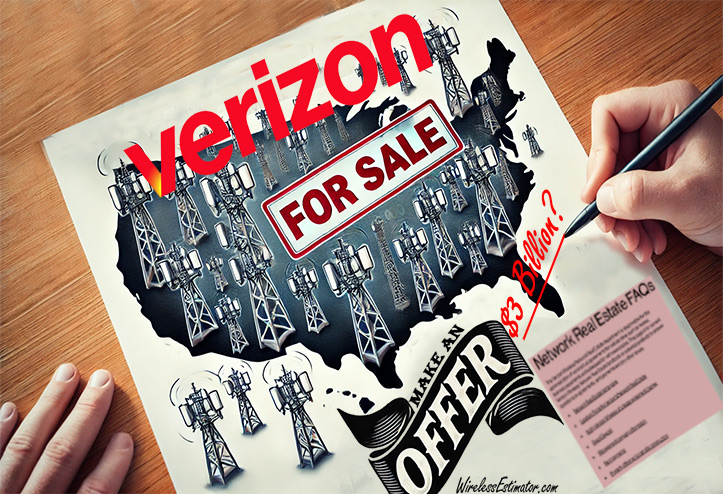
Verizon’s 5,000 to 6,000 cell towers might be sold as the company shores up its finances. The exact number of tower sites is unknown since Verizon doesn’t publish the total. According to Bloomberg, the telecom giant has already hired advisers to gauge interest from potential buyers for a package that might raise $3 billion for their towers.
According to a regulatory filing, Verizon expects to incur a severance charge between $1.7 billion and $1.9 billion in the third quarter of 2024. This is part of a voluntary separation program the company announced in June, targeting select U.S.-based management staff.
As a result of the program, approximately 4,800 eligible employees are expected to leave Verizon by the end of March 2025, with over half set to exit the company this month. The voluntary separations are part of Verizon’s broader strategy to streamline its operations amid increasing competition in the telecom sector.
Tower sale will provide a needed boost to the company’s finances
In addition to the severance charge, Verizon revealed plans to cease using certain real estate assets and exit non-strategic areas of its business, resulting in an additional charge of $230 million to $380 million during the third quarter.
The announcement strongly indicates that Verizon is considering selling a significant portion of its network’s towers.
Wireless Estimator reported in July that the telecom giant had hired advisers to assess interest from potential buyers for a package of around 5,000 to 6,000 towers. This potential sale could bring in over $3 billion, providing a much-needed boost to the company’s finances as it grapples with billion-dollar severance costs and ongoing debt challenges.
While the decision is still in the preliminary stages, it reflects a broader strategy by Verizon to realign its financial priorities. Selling off its towers would follow a similar move from 2015 when Verizon sold the rights to lease and operate 11,000 towers to American Tower Corp. for $5 billion. That deal helped the company raise funds for spectrum purchases and debt reduction. If American Tower acquires Verizon’s current portfolio, the company will control nearly 49,000 towers, surpassing its closest competitor, Crown Castle, by a margin of 9,000 towers.
This potential sale is occurring alongside another critical strategic initiative. Verizon’s CEO, Hans Vestberg, recently suggested implementing generative AI within its customer service operations. This move, aimed at enhancing efficiency by matching customer calls with suitable agents, could help Verizon retain up to 100,000 customers. However, adopting this advanced technology would require substantial investments, which may be part of why the company is exploring the sale of its towers.
Despite these efforts, Verizon faces stiff competition from rivals AT&T and T-Mobile US, which have grown subscriber numbers thanks to their attractive unlimited data plans. On the other hand, Verizon has been grappling with slower customer growth, especially as fewer consumers are upgrading their phones—a trend that led the company to miss its quarterly revenue expectations in July.
Industry analysts are optimistic that Apple’s upcoming iPhone release may help spur phone upgrade activity, which could provide a much-needed boost to Verizon’s sales.
To strengthen its market position, Verizon recently announced an all-cash acquisition of Frontier Communications, a fiber-optic internet provider, for $20 billion. The deal is seen as a strategic move to expand Verizon’s broadband services and attract more subscribers, complementing its wireless offerings.

















